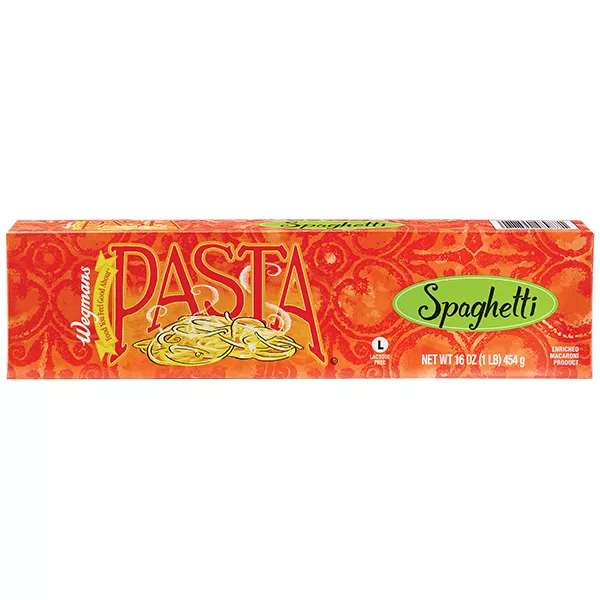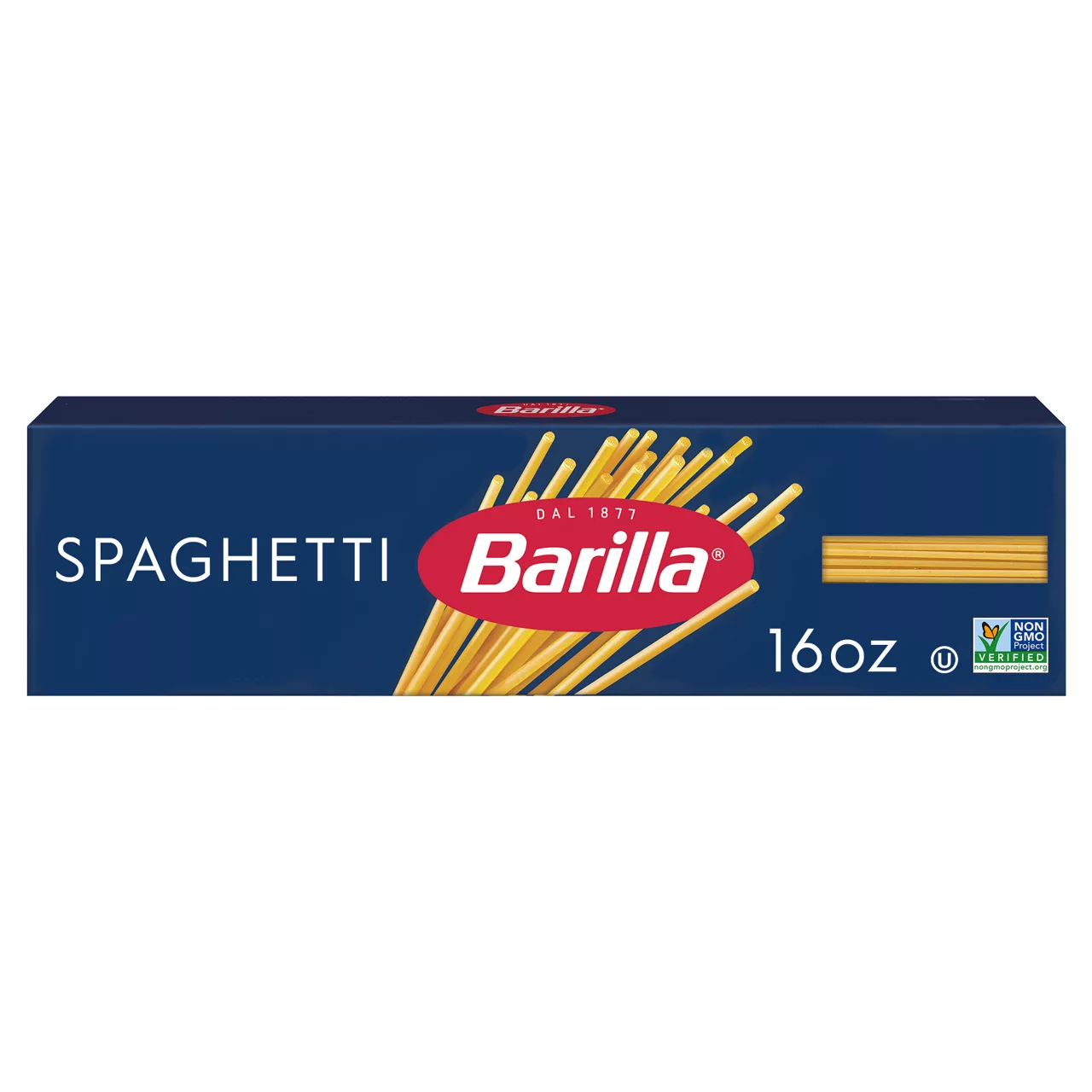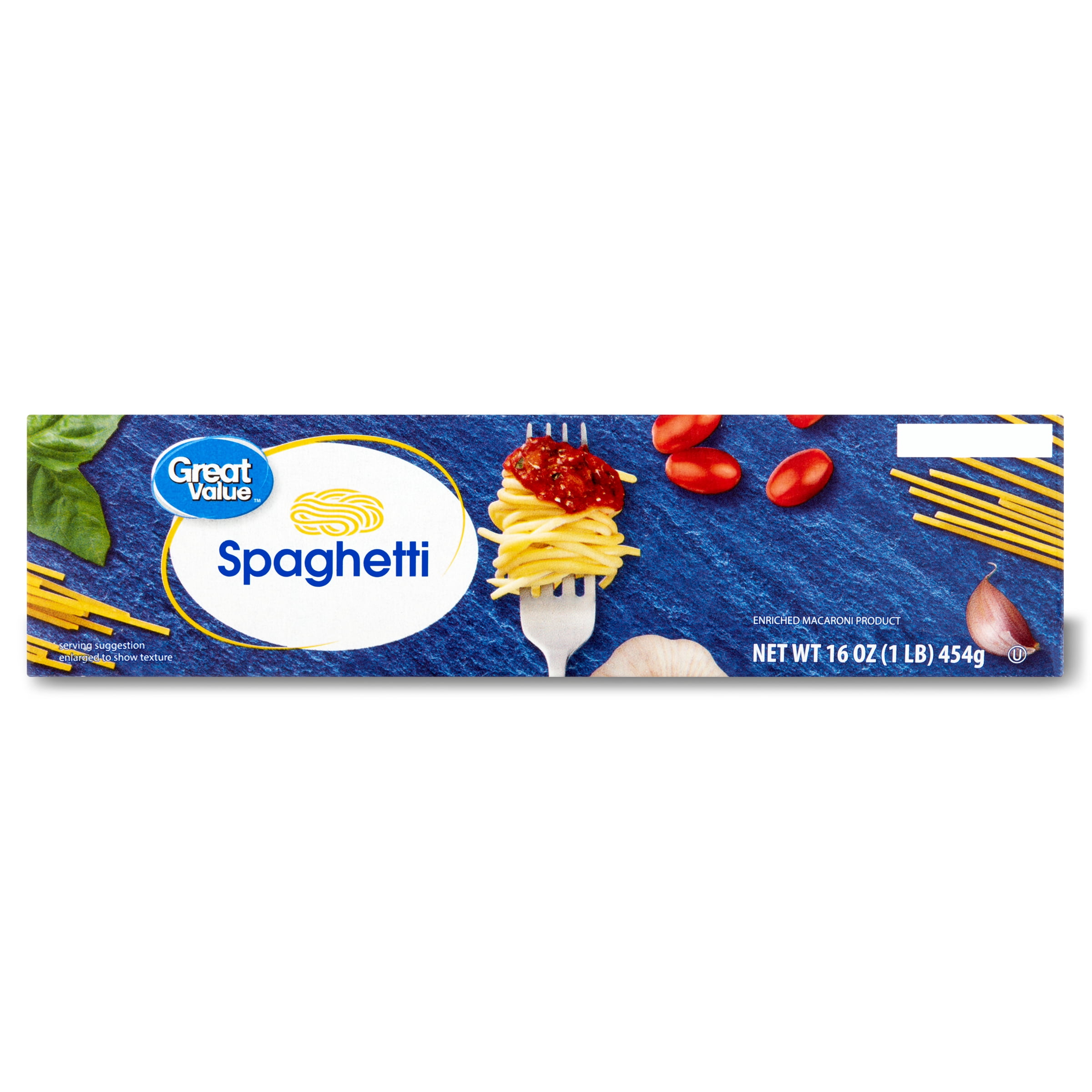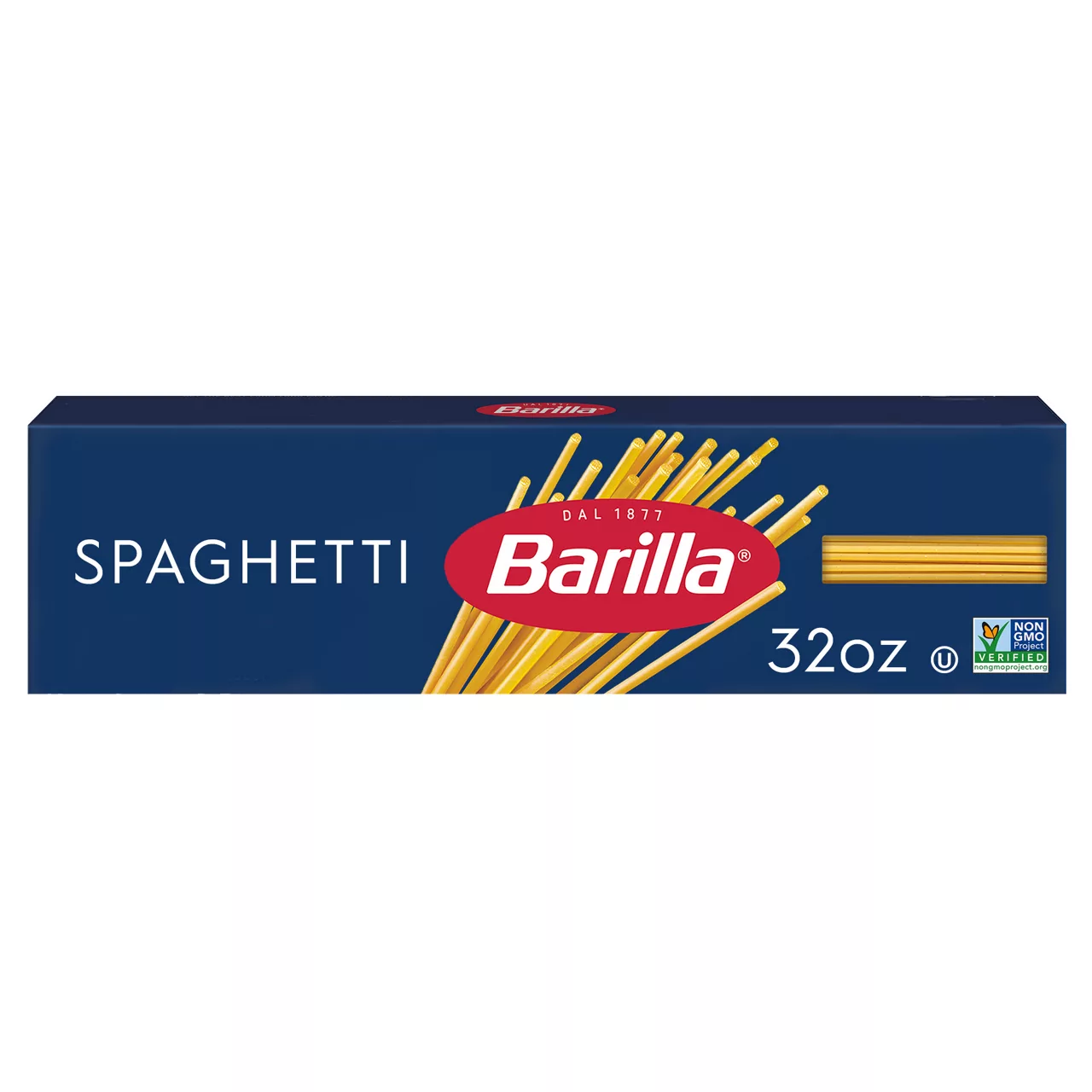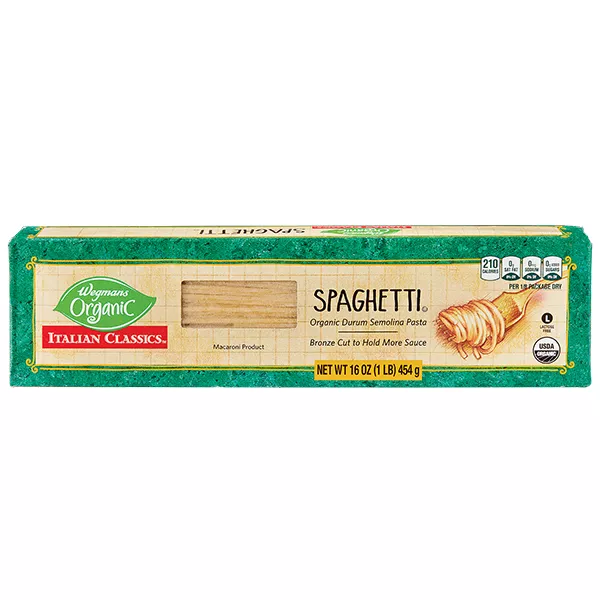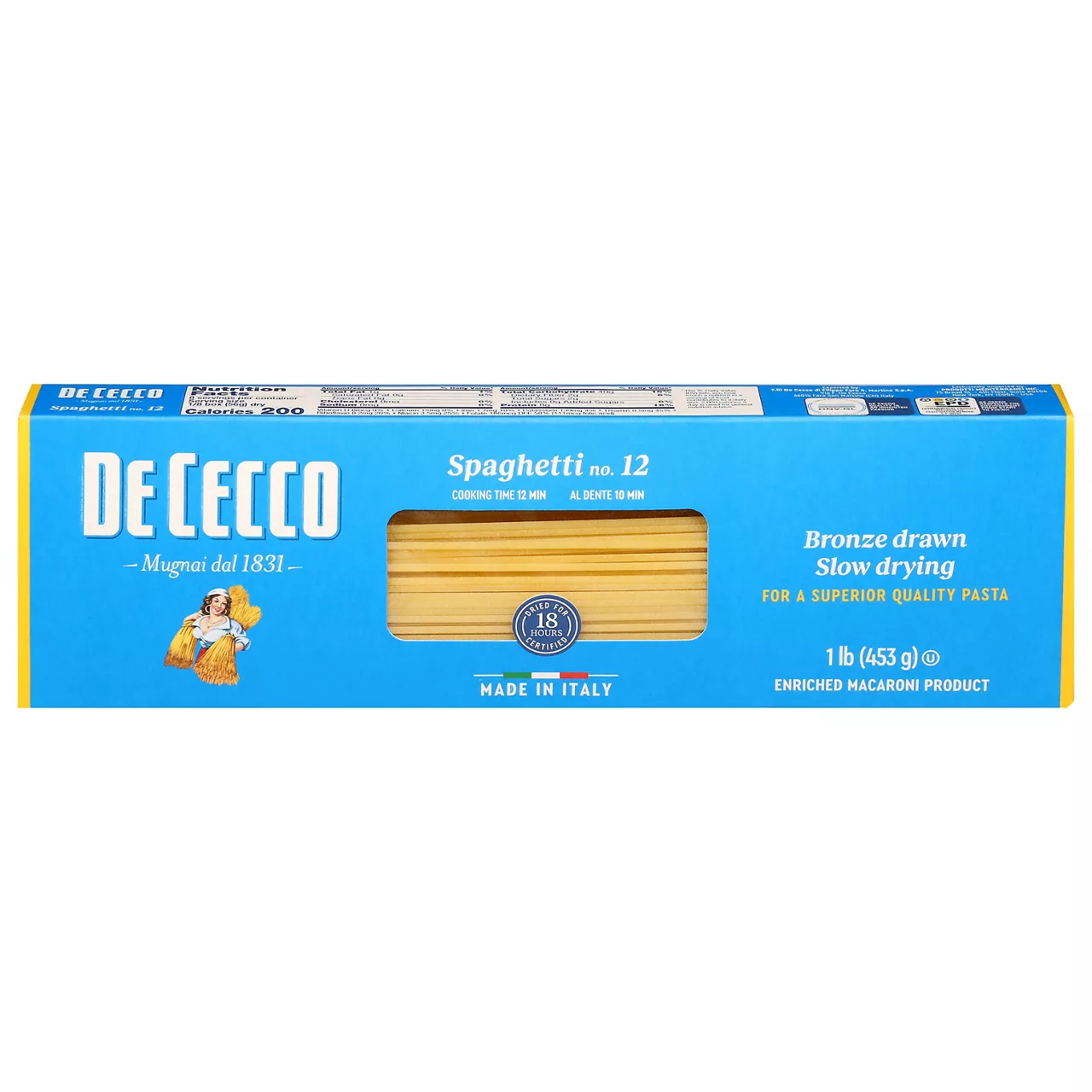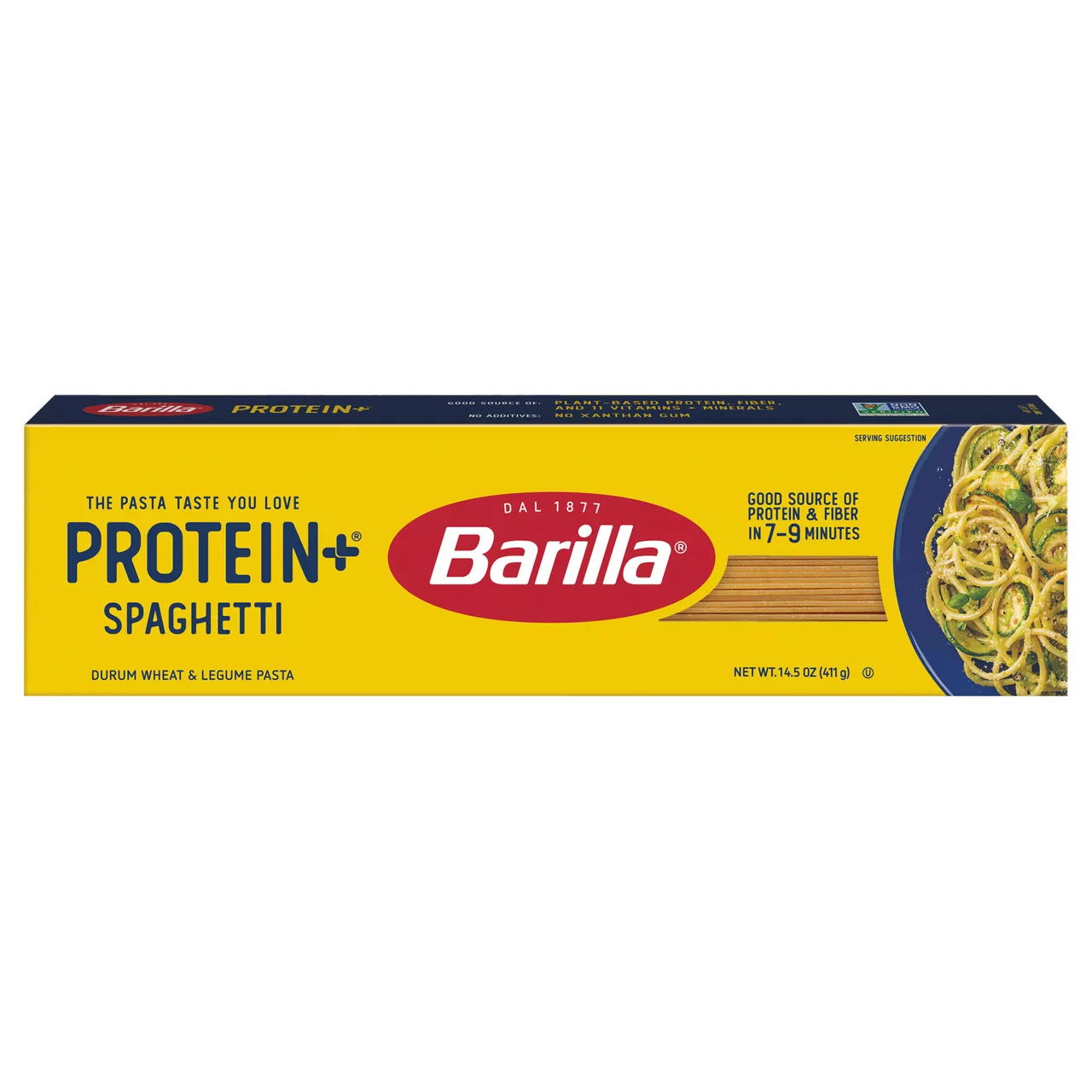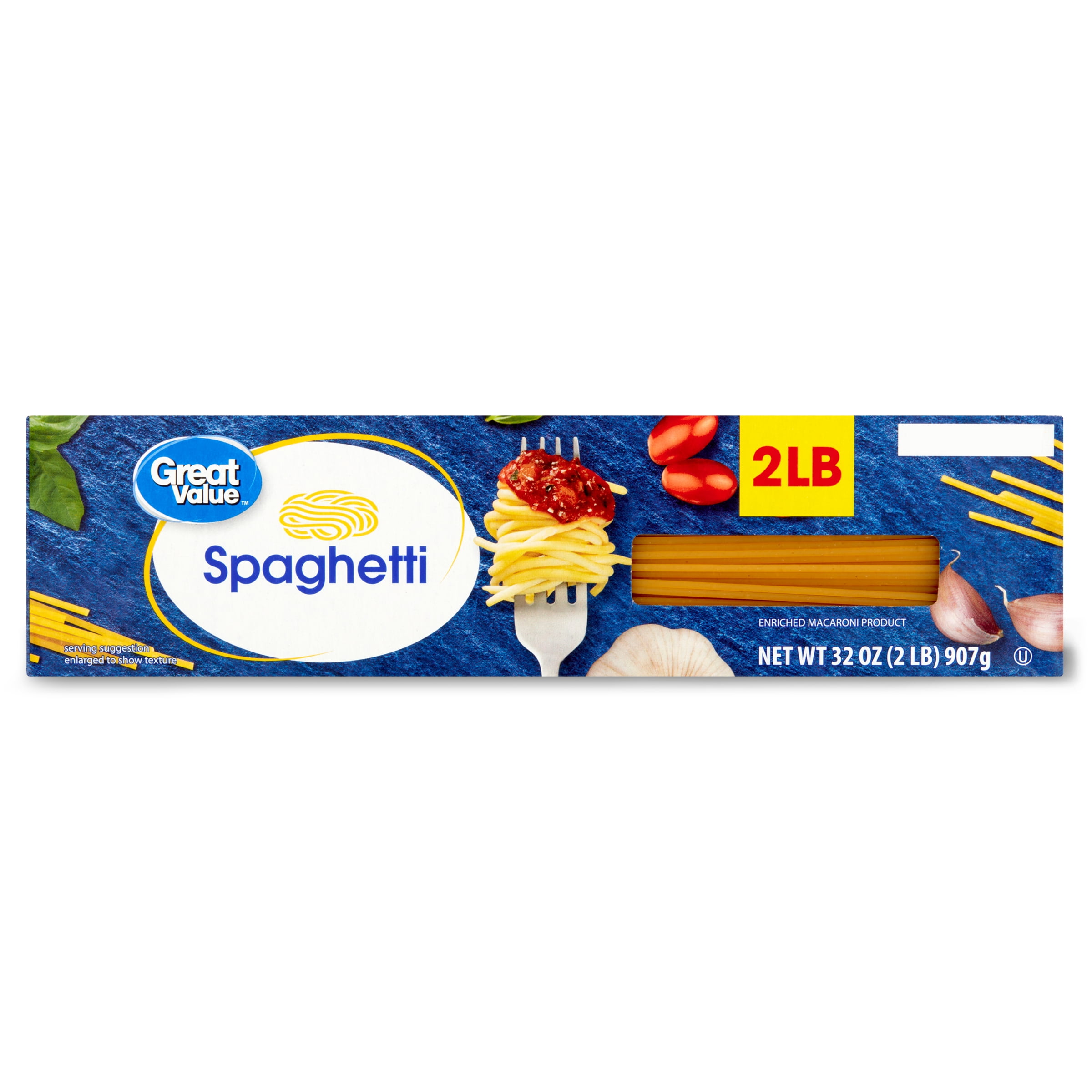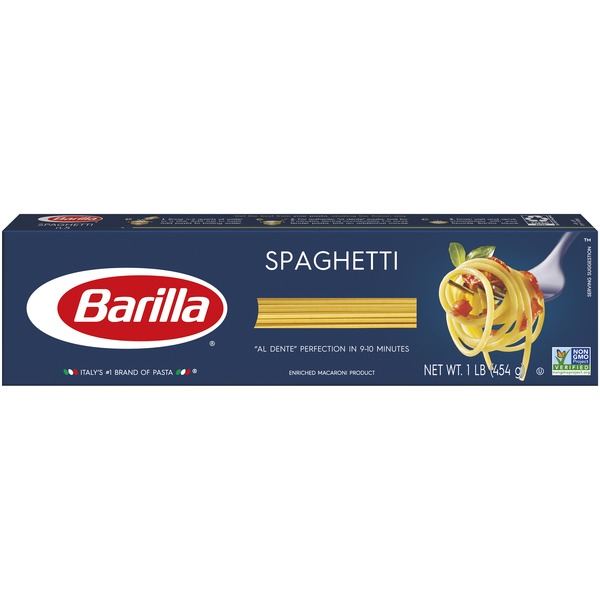MAIN DISHES
SOUPS
Spaghetti
Spaghetti is a popular Italian pasta variety made from wheat flour and water, typically in the form of long, thin, cylindrical noodles. Ranging from 1.5mm to 2.5mm in diameter, it is a versatile pasta choice that can be paired with a wide range of sauces and accompaniments, making it an essential staple in many kitchens worldwide.
While spaghetti is often associated with the classic Italian dish spaghetti Bolognese, there are countless other dishes to be explored, such as spaghetti carbonara, spaghetti alle vongole (with clams), and spaghetti aglio e olio (garlic and oil). Its simplicity and adaptability have made spaghetti one of the most beloved and commonly consumed types of pasta.
84%
CARBS
2%
FAT
15%
PROTEIN
3,015 Spaghetti Products
Used In 240 Recipes
3
Creamy Spaghetti with Rich Meat Sauce
5
Garlic Shrimp Pasta with Spicy Olive Oil Sauce
4
Creamy Spinach and Parmesan Pasta with Grilled Chicken
4
Lemony Broccoli and Basil Pasta
3
Garlicky Parmesan Buttered Noodles
4
Chocolate-Spiced Cincinnati Chili
2
Classic Spaghetti with Delightful Meatballs
5
Cheesy Taco Spaghetti Casserole
Spaghetti Is Frequently Used With
Spaghetti FAQ
Spaghetti is a wonderfully versatile and easy-to-cook ingredient that forms the basis of numerous beloved Italian dishes. When it comes to cooking spaghetti, people often wonder about the right cooking times, techniques to prevent the pasta from sticking together, and the best pairing sauces or ingredients. Some common mistakes include breaking the spaghetti before cooking, not using enough water or salt in the cooking process, and overcooking the pasta. To get the most out of spaghetti, make sure to use a large pot with plenty of water (1 litre for every 100g of pasta is a good rule of thumb) and salt the water to flavor the pasta. Cooking the spaghetti until it's 'al dente' (firm to the bite) will provide the best texture.
Little known tips for cooking spaghetti include adding a bit of the pasta cooking water to the sauce to help it stick to the pasta, always stirring the pasta immediately after it's added to the boiling water to prevent sticking, and not rinsing the pasta after cooking unless in specific cases (like a pasta salad), as it removes helpful starches.
As a side note, thicker varieties of spaghetti such as 'spaghettoni' are often paired with robust, chunky sauces as they hold up well to hearty ingredients, while thinner varieties like 'spaghettini' are well suited to lighter sauces and oils.
Should spaghetti be cooked covered or uncovered?
How do I know when my spaghetti is cooked 'al dente'?
How long should I cook spaghetti?
How can I prevent my spaghetti from sticking together?
Should I rinse my spaghetti after cooking?
How can I make sure my spaghetti is well flavored?
When should I add the sauce to my cooked pasta?
Can I cook spaghetti in a pan?
Do I need to use oil when cooking spaghetti?
What type of sauces work best with spaghetti?
Expiration & Storage Tips
When does spaghetti expire?
Unopened dried spaghetti usually lasts up to two years if stored in a cool, dry place. Once opened, it's best to use it within one year. Fresh homemade spaghetti will last in the refrigerator for 3-5 days or up to 2-3 months in the freezer. Comparatively, the printed dates on the packaged spaghetti usually take into consideration optimal storage conditions, so spaghetti may last a bit longer or shorter depending on how it is stored.
How do you tell if spaghetti is bad?
If the spaghetti starts to develop a funny smell, has traces of mold or changes color, you know it's time to toss it. For cooked spaghetti, a slimy or sticky texture often indicates that it has gone bad. Remember, when in doubt, it's always better to be safe than sorry- if you're not sure, it's best to discard it.
Tips for storing spaghetti to extend shelf life
• Store dried spaghetti in a cool, dry cupboard away from any heat source.
• When your spaghetti box is opened, ensure to secure it tightly to prevent air and moisture contamination. You can also transfer it to an airtight container for better storage.
• Freshly made or opened spaghetti can be refrigerated. Wrap them well in cling film or store in airtight containers.
• Frozen spaghetti should be defrosted in the refrigerator overnight before using.
• Cooked spaghetti can be stored in the fridge for 3-5 days- make sure to cool it down before boxing it up!
EXPIRES WITHIN
19 - 29
MONTHS
Equivalents
Substitutes
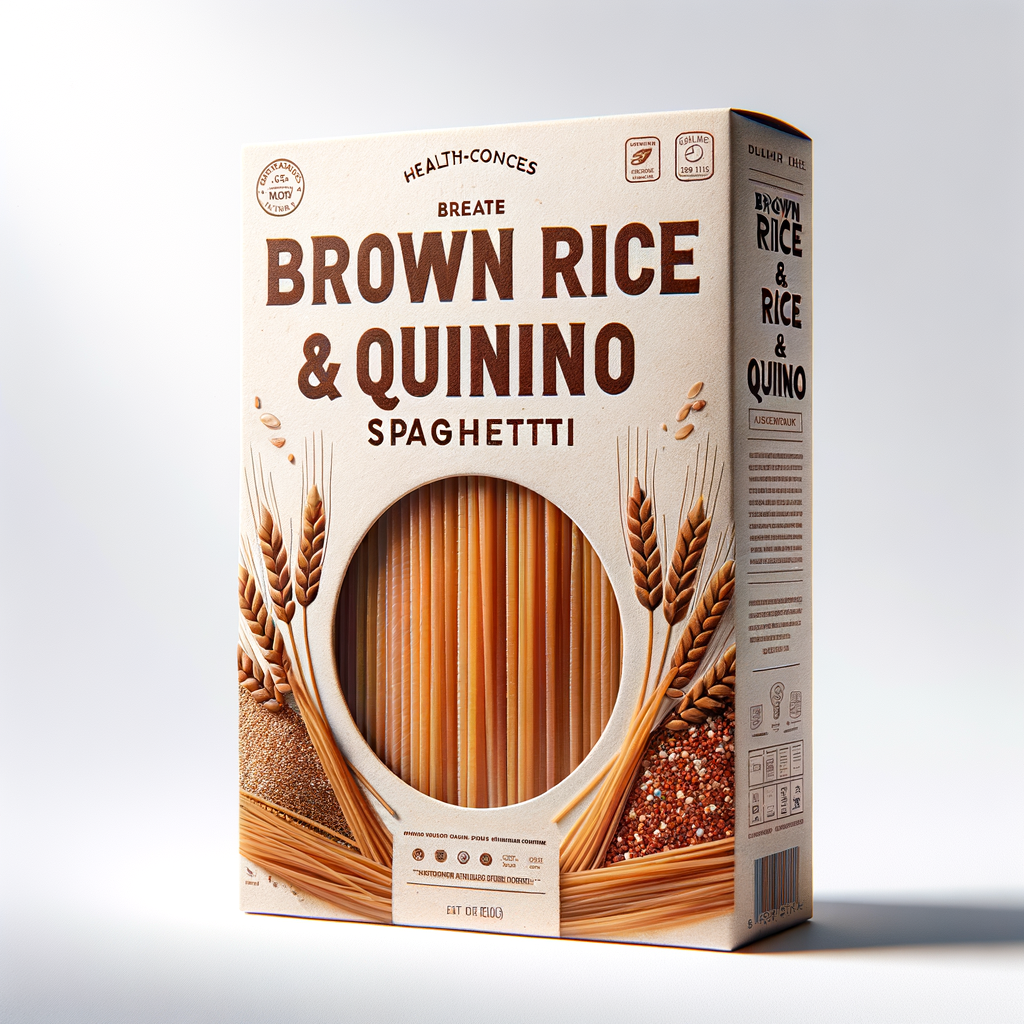
Rice & Quinoa Spaghetti
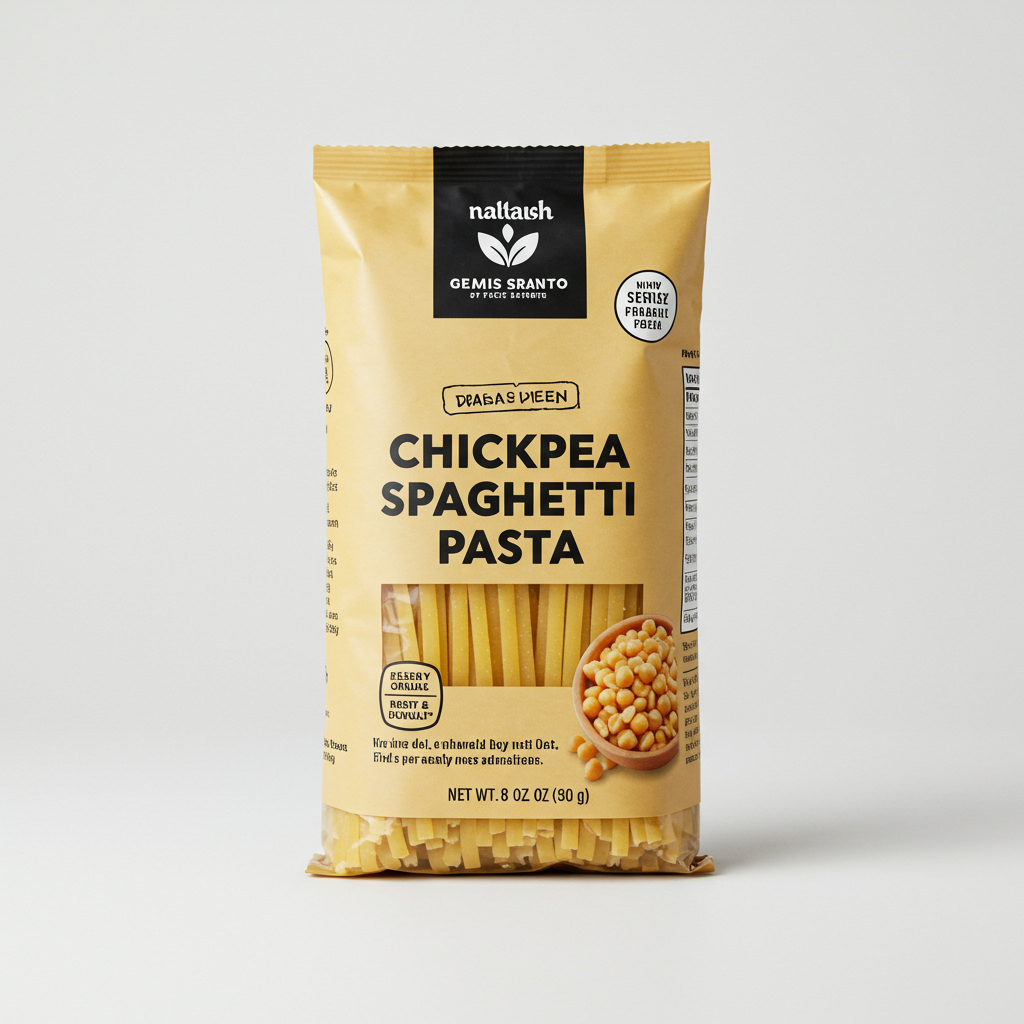
Chickpea Spaghetti

Lentil Spaghetti

Vermicelli

Whole Grain Spaghetti

Angel Hair Pasta

Thin Spaghetti
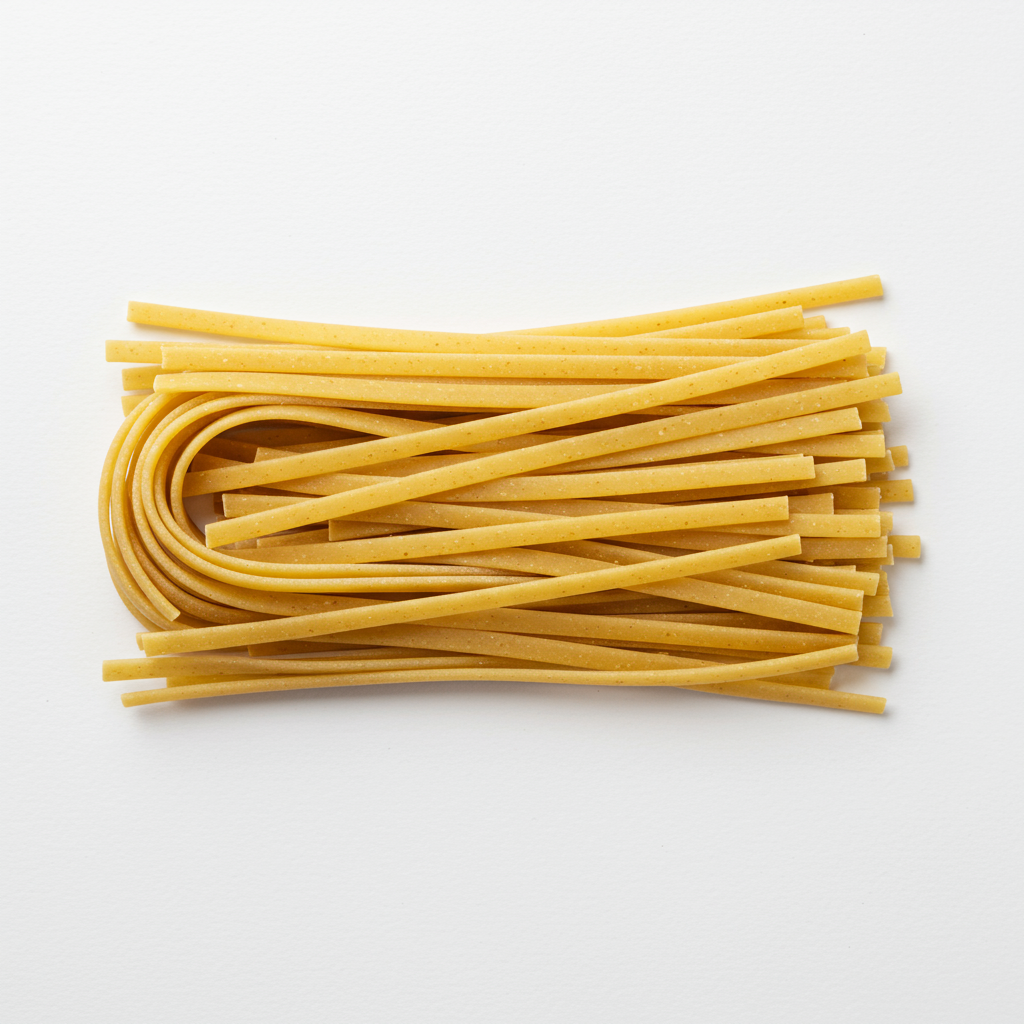
Chickpea Linguine Pasta
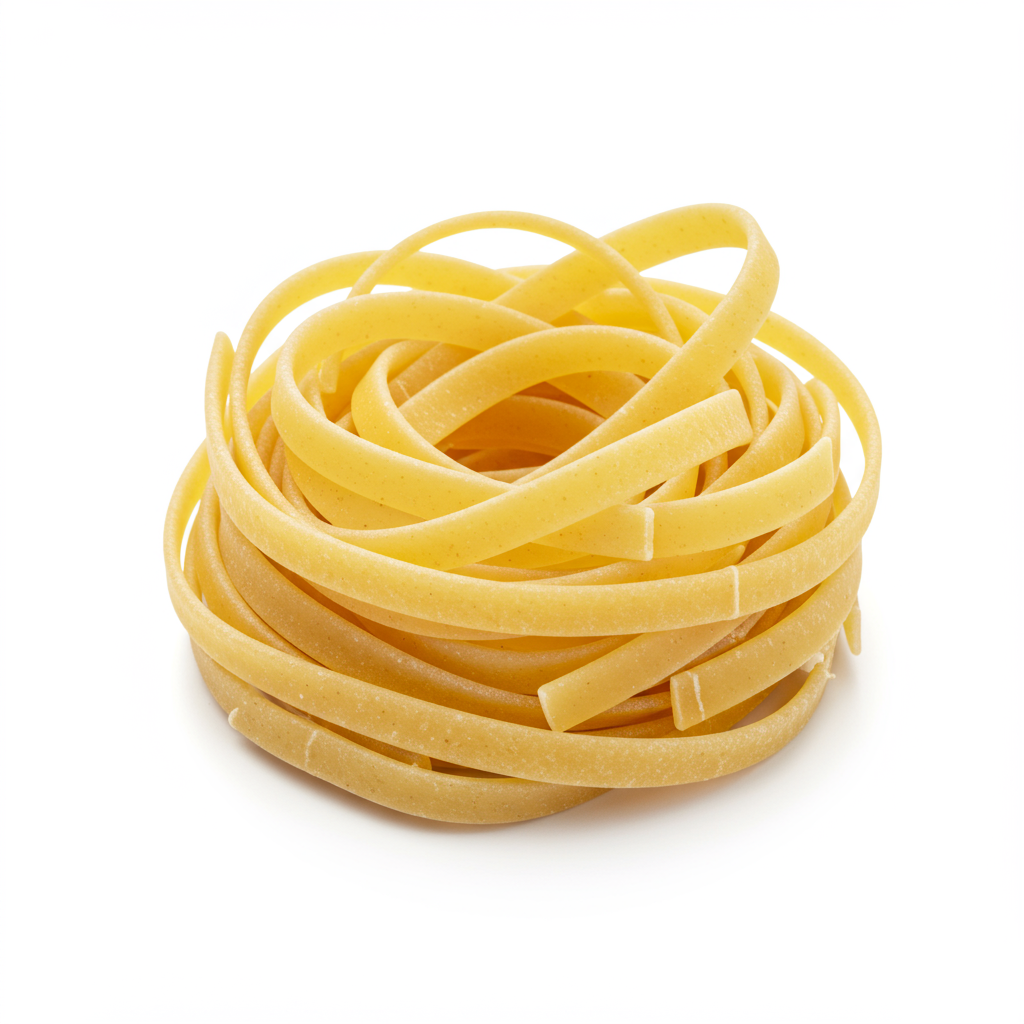
Gluten Free Fettuccine Pasta

Gluten Free Linguine
See All
Health Info
Macros
41g
CARBS
0g
FAT
7g
PROTEIN
Allowed on these diets
LOW FAT
HIGH CALCIUM
VEGETARIAN
VEGAN
LACTOSE FREE
Contains these allergens
WHEAT

